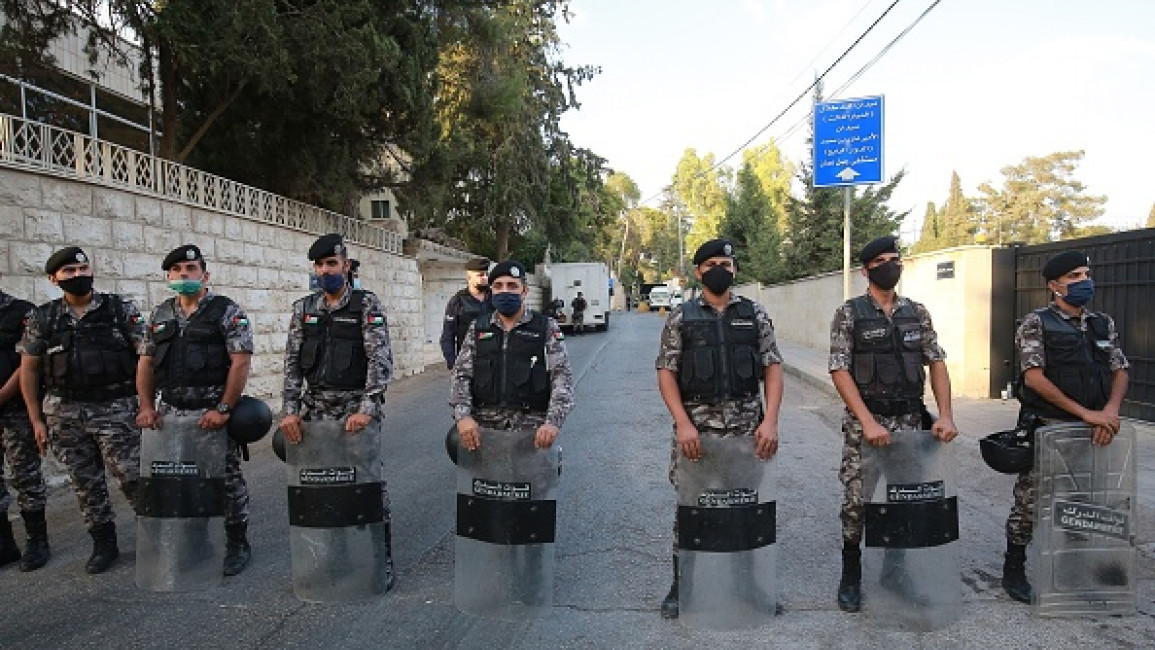Jordanian government 'arrests, harasses' hundreds of pro-Palestine protesters: Human Rights Watch
A report by Human Rights Watch (HRW) on Tuesday revealed that the Jordanian government has been arresting and harassing scores of Jordanians who participated in pro-Palestine activism since October.
Since the 7 October surprise attack on the Gaza envelope by Hamas and the subsequent start of Israel's military operation on Gaza, which has killed more than 27,000, thousands of Jordanians have participated in peaceful protests in solidarity with Palestine.
The Jordanian government has likely arrested "hundreds" for their involvement in pro-Palestine activism, HRW reported, many of them charged under a controversial new cybercrime law.
"Jordanian authorities are trampling the right to free expression and assembly in an effort to tamp down Gaza-related activism," said Lama Fakih, Middle East director at HRW.
Jordan signed a peace treaty with Israel in 1994, but its population remains overwhelmingly sympathetic to the Palestinian cause. Since 7 October, it has called for the government to take a stronger stance against Israel's strikes against civilians in Gaza.
At least one activist interviewed by HRW, Anas al-Jamal, had been arrested under the cybercrime law for tweets he had made in October criticising Jordanian authorities for blocking protests.
Al-Jamal was sentenced to three months in jail and given a fine of about US$7,000 – the median annual income in Jordan is US$7,194 – based on a section of the cybercrime law which criminalises publishing names or pictures of law enforcement officials without prior authorisation.
The new cybercrime law, signed in August, was passed despite an outcry from civil society that it contained overly broad provisions which could give the government license to repress free speech and assembly.
The new law came after years of what rights groups describe as shrinking civil space and increased government repression in Jordan.
In September 2022, HRW said that authorities used vague laws to detain, interrogate and harass journalists, political activists and members of political parties to quash political dissent.
Most of the protesters detained since October were charged with taking part in an illegal gathering or encouraging others to take part in illegal gatherings, as well as charged for slandering official institutions, Louay Obeidat, a lawyer who defended several of the detained, told The New Arab.
"Most of the charges were false or not impartial and not based on a correct legal basis. The court said it did not have responsibility over the overwhelming majority of the protesters," Obeidat said.
In many cases, even after the public prosecutor or judge ordered a detainee released, the Jordanian Interior Ministry re-arrested or kept people in custody, "coercing" detainees to sign pledges not to protest again under the threat of a US$70,000 fine, HRW reported.
Jordan's Prime Minister Bisher al-Khasawneh said on 26 November that "there has been no arrest of any person for practising the right to peaceful expression."
He further explained that only two dozen had been arrested in connection with vandalism and assaulting officers.



